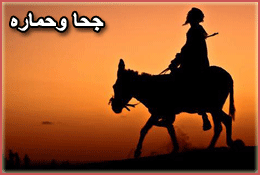Intermediate - Joha goes to war

Joha is one of the most famous comedian characters in Arabic history. In today's lesson you will hear one of his funny stories as well as learn some useful Arabic vocabulary from your usual hosts so tune in.



The English word “strategy”, which is first attested in 1810, was borrowed from French, and the French noun “stratégie” was in turn borrowed from Greek. “Strategia” is also used in classical Latin, but in Latin texts it normally denotes an administrative division of a province. Kilikia, for instance, was known in ancient times as the Strategia of Cappadocia, and English archaeologists use “strategia” in the Roman sense (cf. W. M. Ramsay, The Historical Geography of Asia Minor, Cambridge, 1890).
Perhaps Ehab can tell us when the word ﺍﺴﺘﺮﺍﺘﻴﺠﻴﺔ was first used in Arabic. If it occurs in Arabic texts written before 1810 it can’t have been borrowed from English.